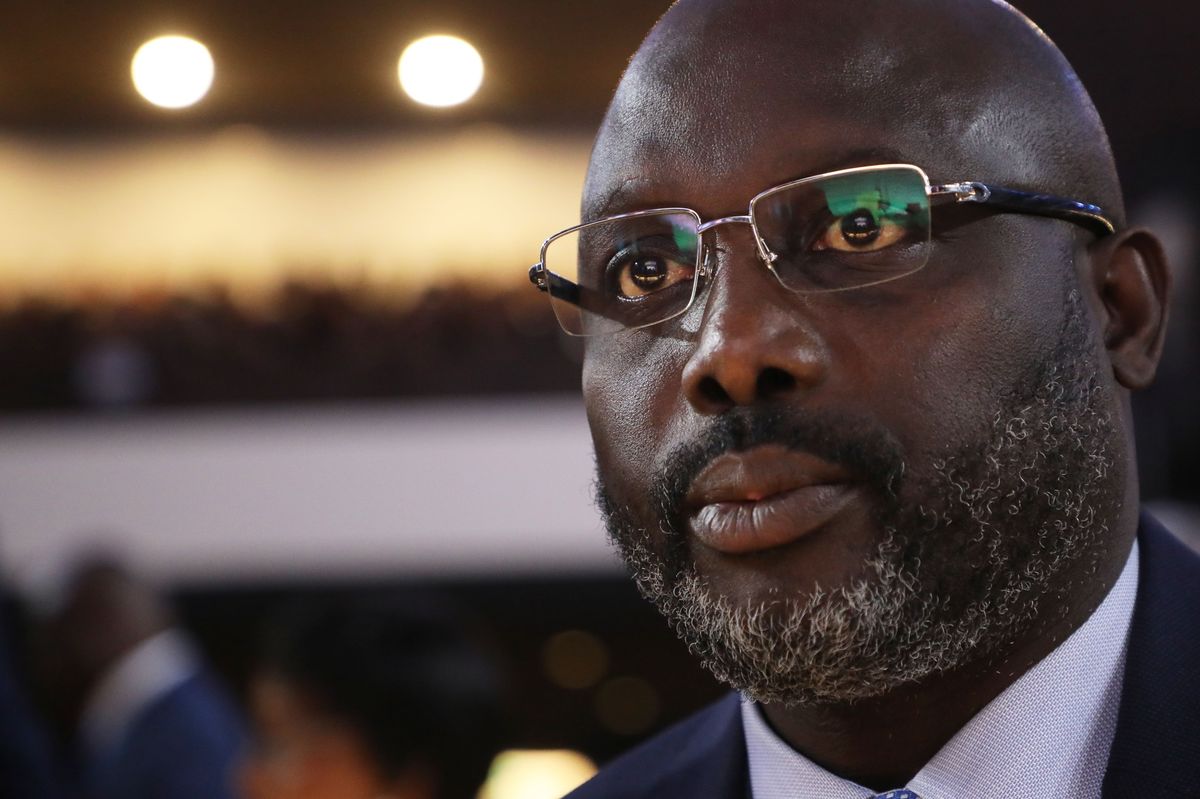- Opposition candidates pledge to tackle inequality, corruption and food insecurity
- Liberians believe Ex-football star seeking reelection; is ‘out of touch’
Deep discontent in Liberia over soaring food prices and shortages of basic goods is posing a second-term-in-office threat to President George Weah, who is increasingly losing the support of post-war voters and the first-time voters ahead of his bid for reelection in October.
President Weah, named the world footballer of the Year in 1995, is seeking a second six-year term against a backdrop of a cost-of-living crisis that has seen thousands take to the streets of the West African nation in protest, with the rising cost of basic staples and infliction swelling the number of people below the poverty line.
Concern Worldwide ranked Liberia’s hunger level as serious in its recent Global Hunger Index, placing it 113th out of 121 countries. That was one spot below Sierra Leone, where a spike in food prices sparked unrest ahead of the presidential elections in June 2023.
There’s enough discontent in the country for an opposition figure “to turn the tide” against Weah, 56, if the October polls go to a second round, Gyude Moore, senior fellow with Washington-based think tank Center for Global Development, said in an interview.
The main challengers to the former AC Milan star include veteran lawmaker and former Vice President Joseph Boakai, widely seen as his biggest threat. Boakai challenged Weah in 2017 but boycotted the second round of voting after the Supreme Court dismissed his allegations of fraud. Other rivals are Alexander B. Cummings, a former regional Coca-Cola Co. and Chevron Corp. executive, and Dr. Clarence Moniba, the son of the late 1980s-era Vice President Harry Moniba.
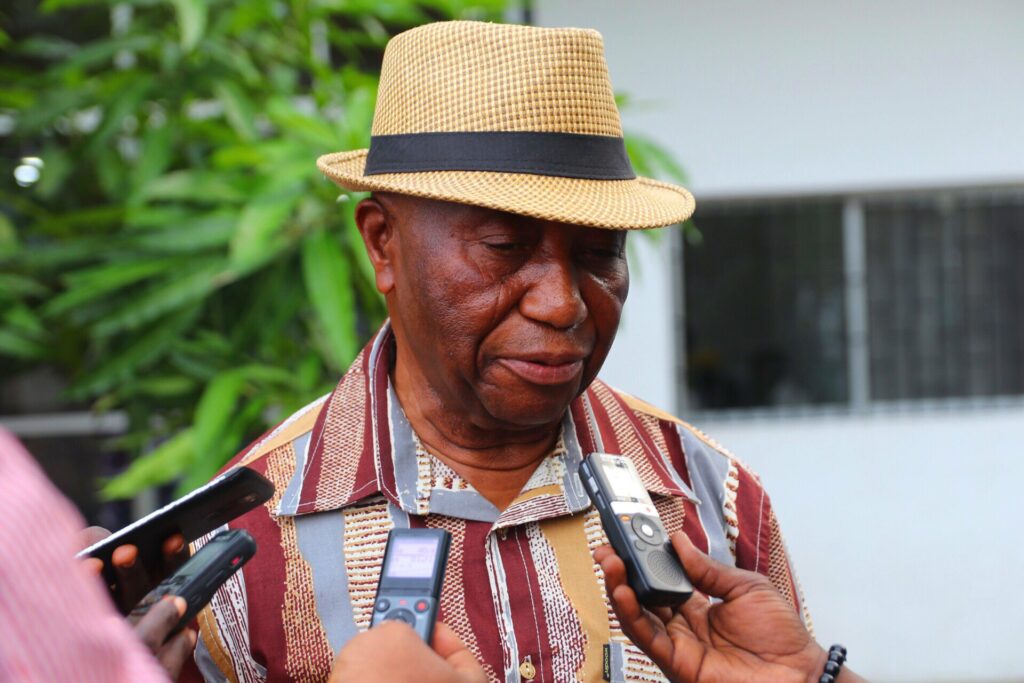
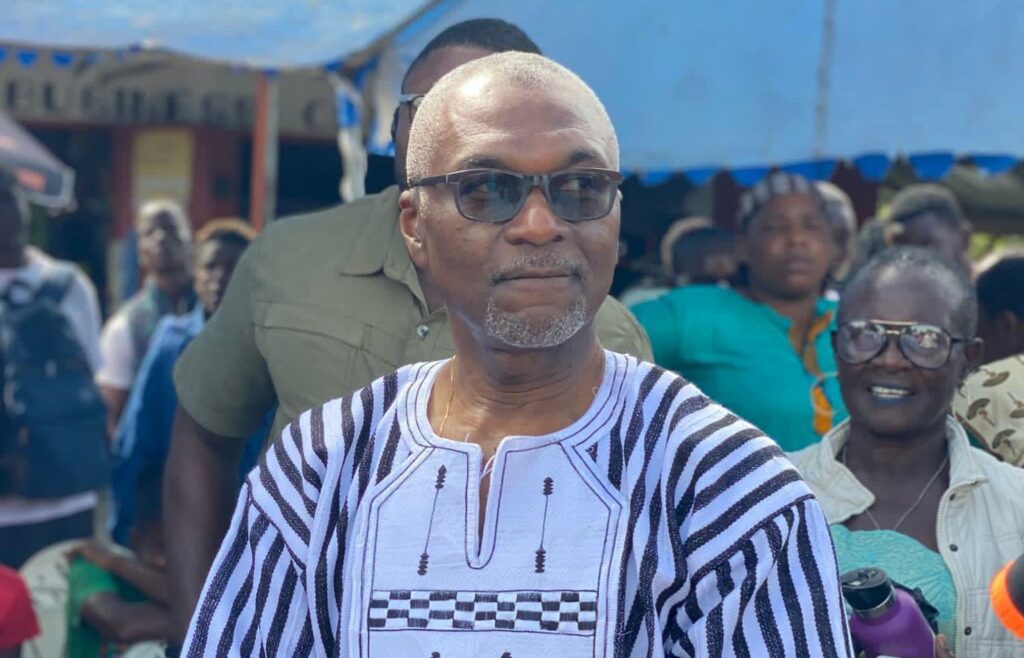
Critics blame Weah and his Congress for Democratic Change party for agreeing to austerity measures in return for an International Monetary Fund bailout, exacerbating the impact of Russia’s invasion of Ukraine on the price of food. To stabilize the price of rice, the Weah administration introduced $11 million of subsidies in the 2022 budget, but the measures failed to prevent hikes and shortages as shipments were delayed and some funds failed to reach importers.
Youth Vote
Newcomers to the race, such as Dr. Moniba, 44, are betting that the large youth vote wants a young, visionary leader. About two-thirds of Liberia’s five million population is under 25.
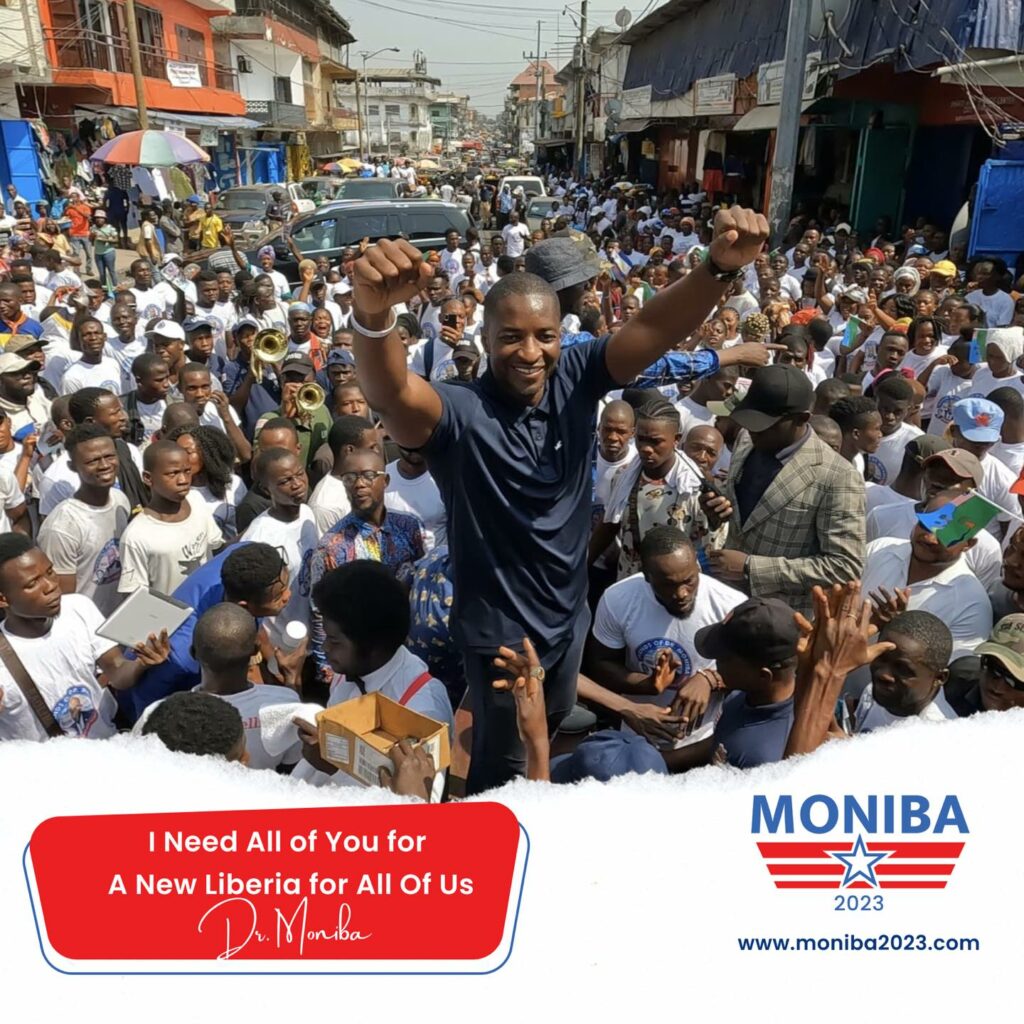
The presidential hopeful has pledged to reduce the uneven distribution of wealth in the country, which has some of the world’s largest rubber and iron-ore reserves. Firestone Liberia Rubber Co. and Arcelor Mittal are among international companies that operate there. Moniba, the former chairman of the state power company, has also vowed to make Liberia self-sufficient on rice, the country’s main staple food.
We need to raise the living standards of ordinary Liberians,” starting with a “change of leadership,” Moniba said in a phone interview. When voters look at me I hope they see the future of Liberia, and that of Africa, where you have highly educated and qualified people, without the stigma of corruption, who can also deliver.
“We have so much land, so much natural resources. Monrovia is one of the rainiest capitals in the world. The weather is perfect. Yet we’re so reliant on food grown outside of the country,” he said.
Everyman Appeal
In the midst of great power competition, rising global instability, food insecurity, increased basic commodities prices, rampant corruption, and high unemployment in Libera, Weah is betting that his “everyman appeal” and international profile will convince young voters and women voters to hand him a second term. The former sports star came to power in early 2018, promising to create jobs, fight corruption and pursue a more open style of leadership than that of establishment politicians such as his main challenger, Boakai, Cummings, and then-President Ellen Johnson Sirleaf.
A high-school dropout who grew up in an impoverished neighborhood of Monrovia, Weah has turned his rags-to-riches story into one of his key credentials, positioning himself as a “man of the people.”
But almost six years into his presidency, Weah faces criticism for being out of touch with ordinary Liberians’ suffering. In December, he wrapped a 48-day worldwide trip that took in stops such as the US-Africa summit in Washington and the football world cup in Qatar, where he watched his son Timothy play for the US.
His absence frustrated voters, and in mid-December, several hundred Liberians held peaceful protests at the invitation of the opposition to denounce what they deemed as Weah’s indifference to the plight of ordinary citizens.
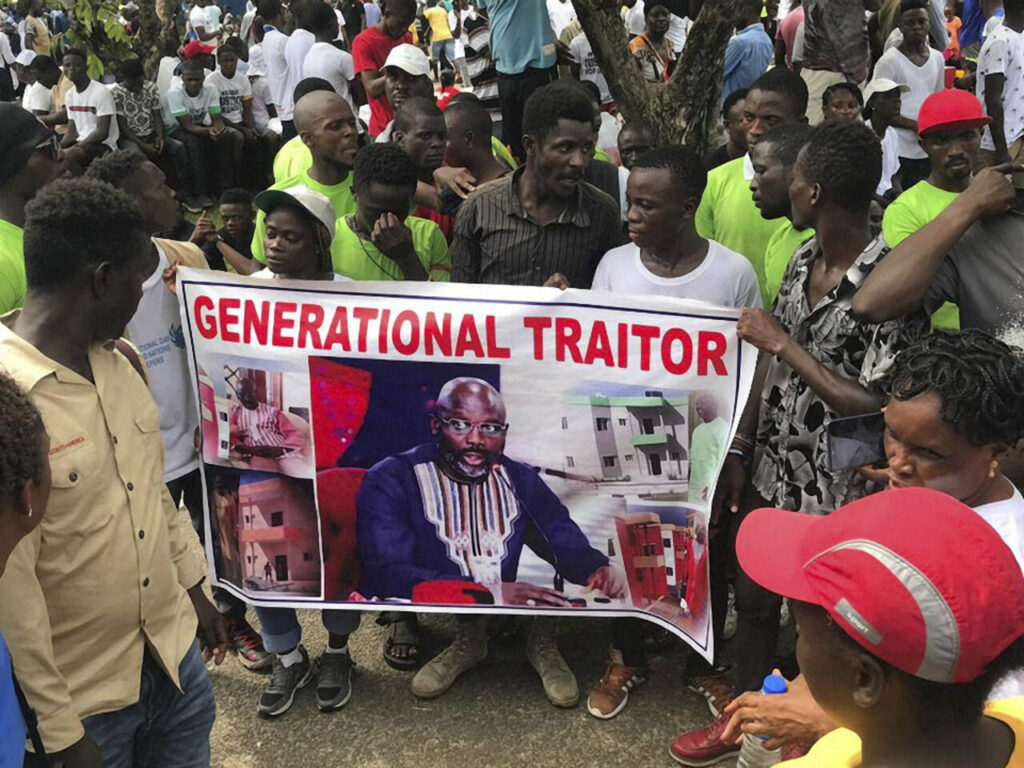
Persistent Graft
The IMF has downgraded Liberia’s 2023 growth forecast to 4.3% from 4.9%. Graft remains endemic, with watchdog Transparency International dropping the country three places to 142 out of 180 in its corruption perceptions index.
In September, Weah accepted the resignations of three close allies after the US Treasury imposed sanctions on them related to multimillion-dollar contracts and at least $1.5 million in diverted public funds.
Much may depend on whether the opposition can unite behind a single, credible candidate. One attempt to agree on a name has already fallen through, after Boakai’s Unity Party broke off from the proposed alliance.
With a “unity ticket unlikely to happen”, the coalition will back a single candidate going into the second round, Cummings said.
Some who have backed Weah in the past, such as Prince Johnson’s Movement for Democracy and Reconstruction, are now fielding their own candidates. Johnson’s party is the dominant force in Nimba County, the country’s biggest province.
“Having multiple players splitting the vote makes the incumbent more competitive,” Moore said by phone from Washington. “The advantage of the incumbent is very sticky.”

